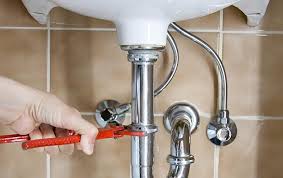
Water Damage: How To Recover, How To Prevent
Water damage is a homeowner’s worst nightmare; it can destroy your property, your prized possessions and undoubtedly dampen your spirits. However, there are ways to prevent against it, and in the worst-case scenarios, procedures to follow should your home become flooded.
How can I Prevent Water Damage?
There are several measures you can take to prevent water damage from harming your home:
- Firstly, check for leaks! Leaks can be caused by a number of things, namely missing or loose roof tiles, damaged or burst pipes and cracked caulking. It’s always best to check and repair any leaks before the onset of the winter months when the weather may take a turn for the worse. Look out for stains on ceilings, dark spots under any piping and water dripping from unusual places.
- If you have a basement, then you should also test your sump pump at least once a year to make sure everything is working as it should. A faulty sump pump could mean a flooded basement if and when a storm hits, which can be costly to clean up. A company experienced in Plumbing Repair In Avon, Ohio can carry out maintenance work and plumbing repair on your behalf.
- Clean guttering regularly and look out for any dripping downpipes to ensure your home has good drainage. Bad drainage creates a whole host of problems and neglected guttering can cause water to cascade and collect around the sides and foundations of your property.
- Ensure all openings within your home are properly sealed; windows, doors and garages need to be weatherproof to prevent damp from seeping inside.
How to Manage Water Damage
If your property has been affected by water damage, don’t fret! There are steps to combat the problem head on:
- The first stage is to thoroughly remove any water as quickly as possible – the longer you leave it, the worse it will get. You can do this by using a wet and dry vacuum which can be rented from remediation companies to suck up dirt, debris, and most importantly, liquid.
- Following on from this, it’s vital to dry your house out by circulating clean air around your rooms to prevent a build-up of mold, which typically festers in damp conditions. An effective way to do this is by using fans or dehumidifiers, 24 hours a day until your house is completely dry.
- Unfortunately, some things cannot be saved in the aftermath of water damage. Carpets, in particular, will usually need to be replaced but you could cut costs by simply replacing the padding instead of opting to re-carpet your entire home.
- Finally, when your property is dried out, it’s vital to effectively sanitize your home. Steam-clean your flooring and walls to combat the development of mold. Indeed, it’s always important to remember that any water entering your home is not going to be clean, which is why all surfaces, flooring and furniture needs to be deodorized.
Ignoring water damage could potentially lead to severe structural issues, and in cases where mold has been allowed to develop, can even cause serious health implications. Always act quickly in the event that your property has been flooded as the long-term consequences can be detrimental.
